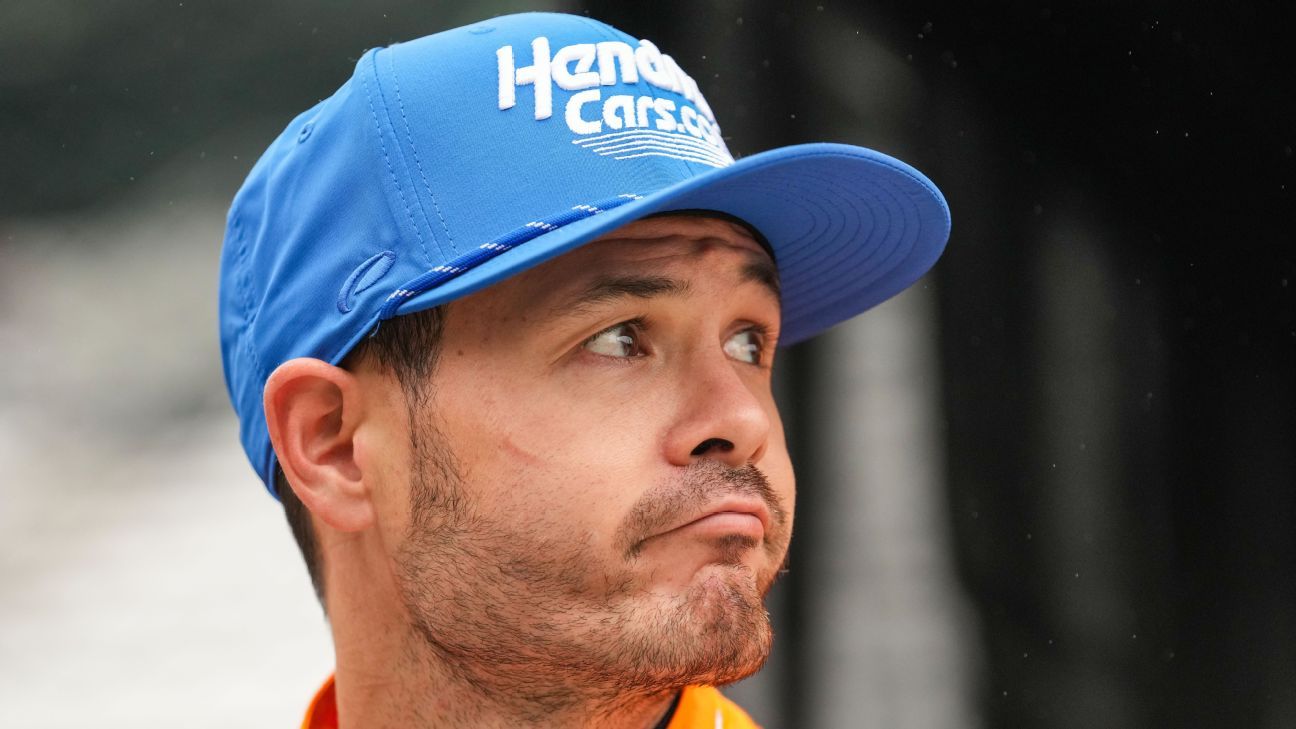Is Greed Killing Good Television? The Impact Of Money On Programming

Welcome to your ultimate source for breaking news, trending updates, and in-depth stories from around the world. Whether it's politics, technology, entertainment, sports, or lifestyle, we bring you real-time updates that keep you informed and ahead of the curve.
Our team works tirelessly to ensure you never miss a moment. From the latest developments in global events to the most talked-about topics on social media, our news platform is designed to deliver accurate and timely information, all in one place.
Stay in the know and join thousands of readers who trust us for reliable, up-to-date content. Explore our expertly curated articles and dive deeper into the stories that matter to you. Visit Best Website now and be part of the conversation. Don't miss out on the headlines that shape our world!
Table of Contents
Is Greed Killing Good Television? The Impact of Money on Programming
The golden age of television, once synonymous with groundbreaking narratives and complex characters, feels increasingly tarnished. While streaming services offer unprecedented choice, many viewers are left wondering: is the relentless pursuit of profit killing the quality of our programming? The answer, unfortunately, is complex, but a closer look at the impact of money on television reveals a troubling trend.
The Algorithm's Grip: Data-Driven Decisions Over Artistic Merit
The rise of streaming platforms has ushered in an era of data-driven programming. Algorithms, designed to maximize viewer engagement and subscription retention, dictate what gets greenlit and how shows are marketed. This focus on quantifiable metrics – watch time, completion rates, subscriber acquisition – often overshadows artistic merit and creative risk-taking. Shows with potentially niche appeal, but high critical acclaim, might get cancelled prematurely if they don't meet arbitrary engagement targets. This leaves less room for the unconventional narratives and character-driven stories that once defined quality television.
The Franchise Factory: Sequels, Reboots, and the Decline of Originality
The pressure to deliver consistent revenue streams pushes networks and studios towards safe bets: sequels, reboots, and familiar franchises. While nostalgia can be a powerful tool, the over-reliance on established intellectual property often stifles originality and creativity. Instead of investing in fresh ideas and new voices, the industry prioritizes milking existing properties for maximum profit, potentially at the expense of narrative quality and audience engagement in the long run.
The Cost of Quality: Production Values vs. Creative Vision
High production values are often touted as a hallmark of quality television. However, the astronomical budgets associated with elaborate special effects and A-list casts can sometimes overshadow the narrative itself. The focus shifts from crafting a compelling story to delivering spectacle, potentially sacrificing character development and plot coherence for visually impressive but ultimately shallow content. This prioritization of flashy visuals over substance is a direct result of the pressure to justify high production costs.
The Rise of the "Algorithm-Friendly" Show:
Streaming services are increasingly tailoring their content to appeal to algorithms, often resulting in shows that prioritize short, easily digestible episodes and predictable narratives. This "algorithm-friendly" approach often sacrifices depth and complexity for immediate gratification, leading to a homogenization of content that lacks the nuanced storytelling that once captivated audiences.
Finding Hope Amidst the Commercialization:
While the commercial pressures on the television industry are undeniable, there's still reason for hope. Independent productions, smaller streaming platforms, and a growing appreciation for critically acclaimed, even low-budget, shows demonstrate a persistent demand for quality programming. The key lies in supporting these alternative platforms and advocating for narratives that prioritize storytelling over profit maximization.
What can we do?
- Support independent creators: Seek out and support smaller studios and streaming services that prioritize artistic merit.
- Demand diverse narratives: Encourage networks to produce shows that reflect the diverse experiences of the world.
- Engage critically: Don't passively consume; engage with the content and express your preferences through reviews and feedback.
- Cancel the shows that don't meet your standards: Your viewing choices have a real impact.
The future of television rests not solely in the hands of executives and algorithms, but in the collective choices of viewers. By demanding quality over quantity, we can help shift the balance of power and ensure that greed doesn't completely eclipse the pursuit of great storytelling. Let's work towards a future where quality television thrives, not just survives.

Thank you for visiting our website, your trusted source for the latest updates and in-depth coverage on Is Greed Killing Good Television? The Impact Of Money On Programming. We're committed to keeping you informed with timely and accurate information to meet your curiosity and needs.
If you have any questions, suggestions, or feedback, we'd love to hear from you. Your insights are valuable to us and help us improve to serve you better. Feel free to reach out through our contact page.
Don't forget to bookmark our website and check back regularly for the latest headlines and trending topics. See you next time, and thank you for being part of our growing community!
Featured Posts
-
 Larson Survives Violent Sprint Car Crash Espn Report
Jun 08, 2025
Larson Survives Violent Sprint Car Crash Espn Report
Jun 08, 2025 -
 Stanley Cup Final Update Marchands Goal Sends Series To Florida
Jun 08, 2025
Stanley Cup Final Update Marchands Goal Sends Series To Florida
Jun 08, 2025 -
 Hunter Dobbins Defiant Stand Retirement Over Pitching For The Yankees
Jun 08, 2025
Hunter Dobbins Defiant Stand Retirement Over Pitching For The Yankees
Jun 08, 2025 -
 Confirmed Euro 2025 Squads England France And All Competitors
Jun 08, 2025
Confirmed Euro 2025 Squads England France And All Competitors
Jun 08, 2025 -
 Apple Tv The Lost Bus Teaser Release Date And Cast Revealed
Jun 08, 2025
Apple Tv The Lost Bus Teaser Release Date And Cast Revealed
Jun 08, 2025
